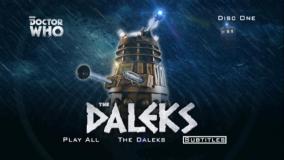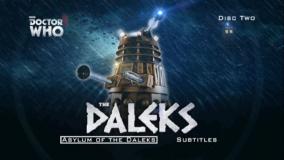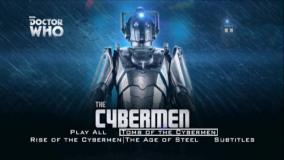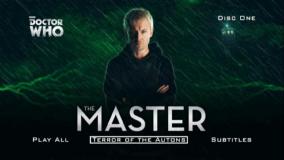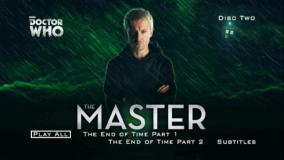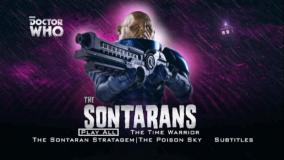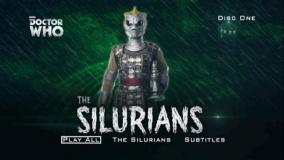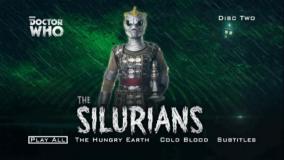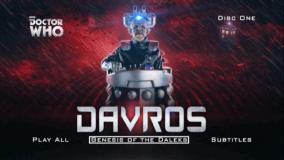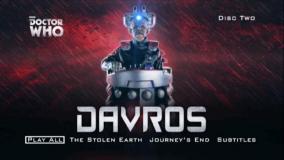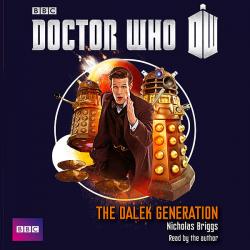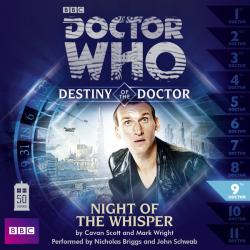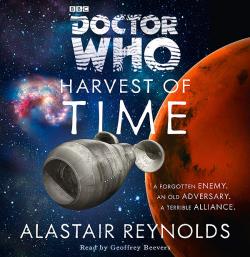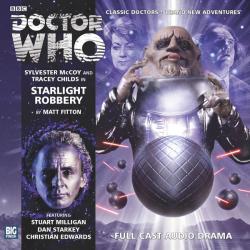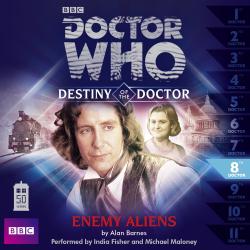The Monster Collection
Thursday, 19 September 2013 - Reviewed by Chuck Foster
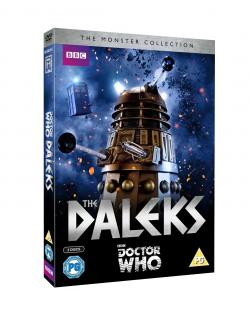
The Monster Collection:Released: 30 September 2013
There's obviously been an attempt to pair up 'origin' stories: for the Sontarans we have The Time Warrior with The Sontaran Stratagem/The Poison Sky, the Silurians have Doctor Who and the Silurians with The Hungry Earth/Cold Blood, and with Dalek creator Davros it's Genesis of the Daleks alongside The Stolen Earth/Journey's End. Things start to go a little awry with The Master, where it's Terror of the Autons paired with The End of Time (though the latter story does explain why the Master is how he is so perhaps more relevant than Last of the Time Lords. The Cybermen are then represented by Rise Of The Cybermen/Age of Steel and The Tomb of The Cybermen (this being the first 'complete' story featuring them) - I'm guessing either the animated reconstructed version of The Tenth Planet wasn't ready for that set's preparation, or maybe it was actually a decision that having an animated episode is mis-representative and might detract newcomers from the show (I doubt it would have been through it's inclusion in the recent Regenerations boxed set, though, being The End of Time is included here!). However, I'm rather more mystified at Asylum of the Daleks's inclusion with The Daleks - I would have thought Dalek would have been a better choice - not to mention meaning that Christopher Eccleston's contribution to the series could also have then been represented!
Speaking of incarnations, only the first four 'classic' Doctors are represented, though with all of the adversaries in the set introduced during the first twelve years of the show that's inevitable. For those that are, we have one Hartnell, one Troughton, three Pertwee and one Tom Baker story (though Troughton only makes it in through The Tenth Planet not being used). Perhaps if the Terileptils, Bandils and Tetraps return then the others could get a look-in (grin).
If future collections were to be considered, then candidates might be - assuming animations remain off the menu - the Ice Warriors represented by The Seeds of Death alongside Cold War, and the Zygons through Terror of the Zygons and the still-be-broadcast The Day of the Doctor. The Autons are another notable absentee, though with Terror already in The Master collection and Spearhead from Space only just been re-released on Blu-ray that set is probably unviable (though it would have given Eccleston another chance with a pairing with Rose!).
However, I suspect that sets such as The Macra (The Macra Terror and Gridlock) and The Great Intelligence (The Abominable Snowmen and The Snowmen) are rather less likely ...
The Discs
The Cybermen and The Sontarans are presented on one disc, with the others across two. As these are a collection, all the discs use the same basic "rainy" montage with spinning TARDIS in the background, with the main protagonist taking centre stage (see the screenshots below). Unfortunately this doesn't extend to the stories themselves, so the 'classic' story has the same graphic as the 'modern' - this is most noticeable with The Master, where John Simm graces Terror of the Autons where I would have really liked an imposing Roger Delgado!
Other than that, these are vanilla releases with only subtitles as an option, and the story-specific sub-menus only give the option to choose a specific episode. There is no restoration work undertaken on these discs either, retaining any rendering issues encountered on their previous dedicated DVD release (for example, David Daker and John Carney credits are still missing from The Time Monster); however, The Tomb Of The Cybermen is the re-released, VidFIREd version from Revisitations 3.
Conclusion
The pairing of a classic era adversary with its modern interpretation is an interesting way to bring those creatures' earlier exploits to the attention of those solely versed in the 21st Century version (not to mention a 'fresh' Doctor, too!) As the publicity says, "These collections are perfect for younger viewers just discovering the scary delights of fifty years of Doctor Who." This is quite a canny move on the part of BBC Worldwide in order to engender an interest in the older stories (and the back catalogue of hundreds of adventures to purcha- enjoy, as well...).
However, there is nothing new of interest to those who already owns previous releases - and the chances are you have, of course - for example with something like Rise of the Cybermen/Age of Steel this is its fourth outing, having been previously released as part of Series 2 Vol 3, The Cybermen (2009) and Doctor Who: DVD Files Vol #10 (not to mention complete series and era boxed sets!). But then, these DVDs are not really aimed at you!
On the other hand, if you are thinking of treating a younger cousin etc. to a Doctor Who DVD in order to introduce them to larger history of the show then these are perhaps a relatively cheap way to do so.
(It's just a shame that the Jagaroth didn't make a re-appearance in order to have City of Death, so you'll just have to buy them the classic release instead!)
